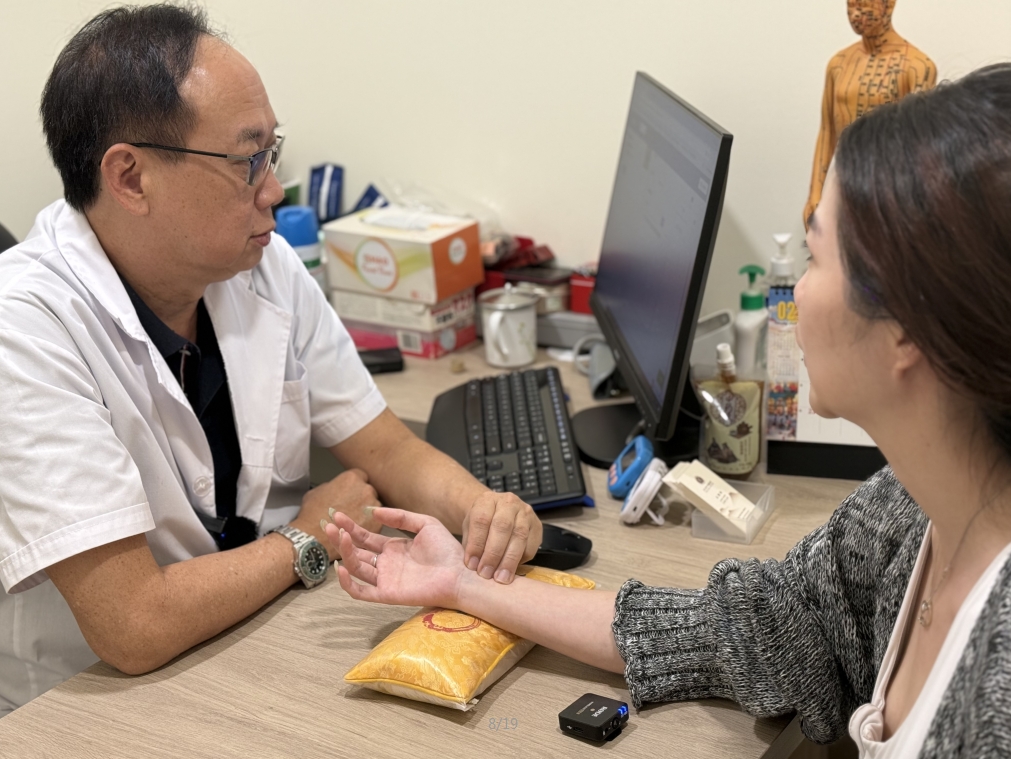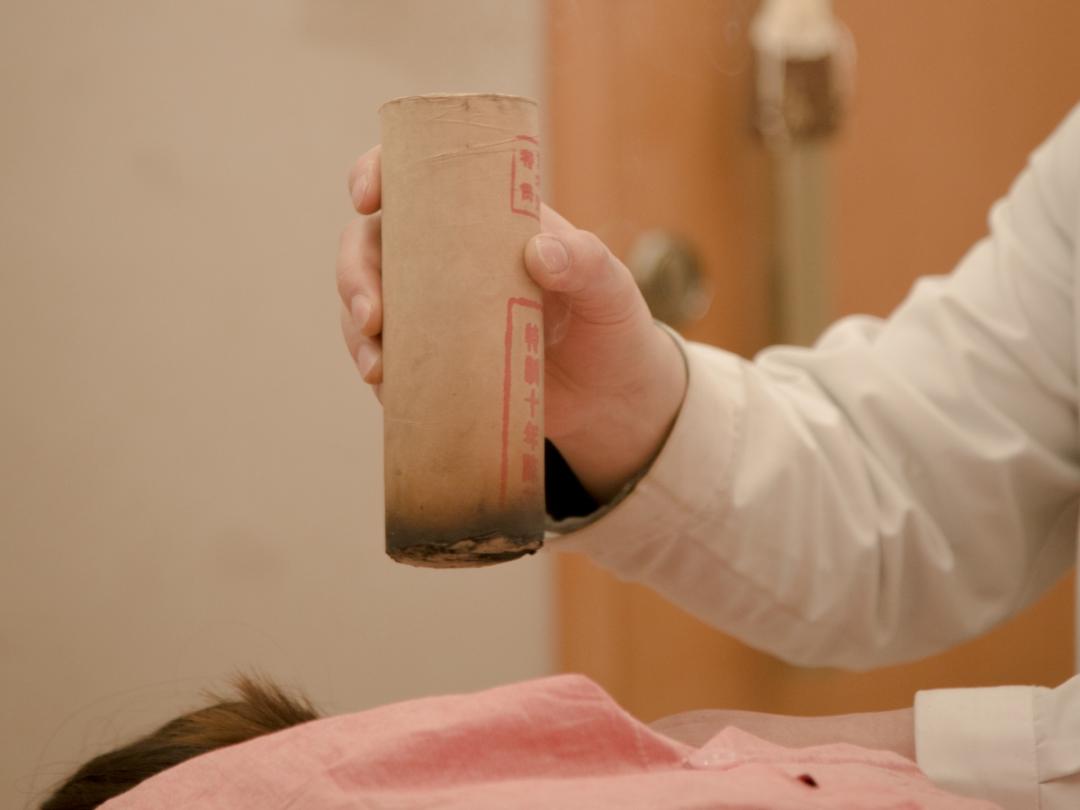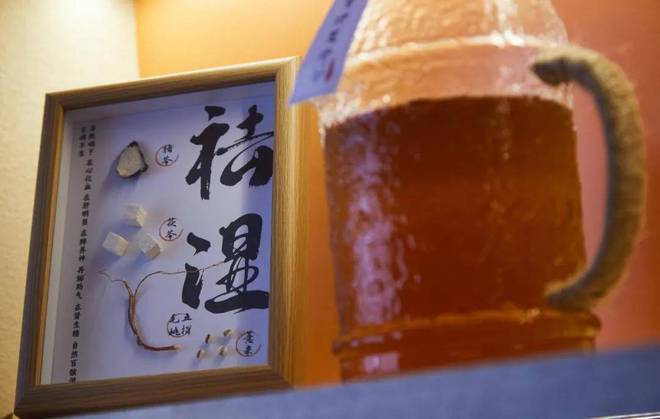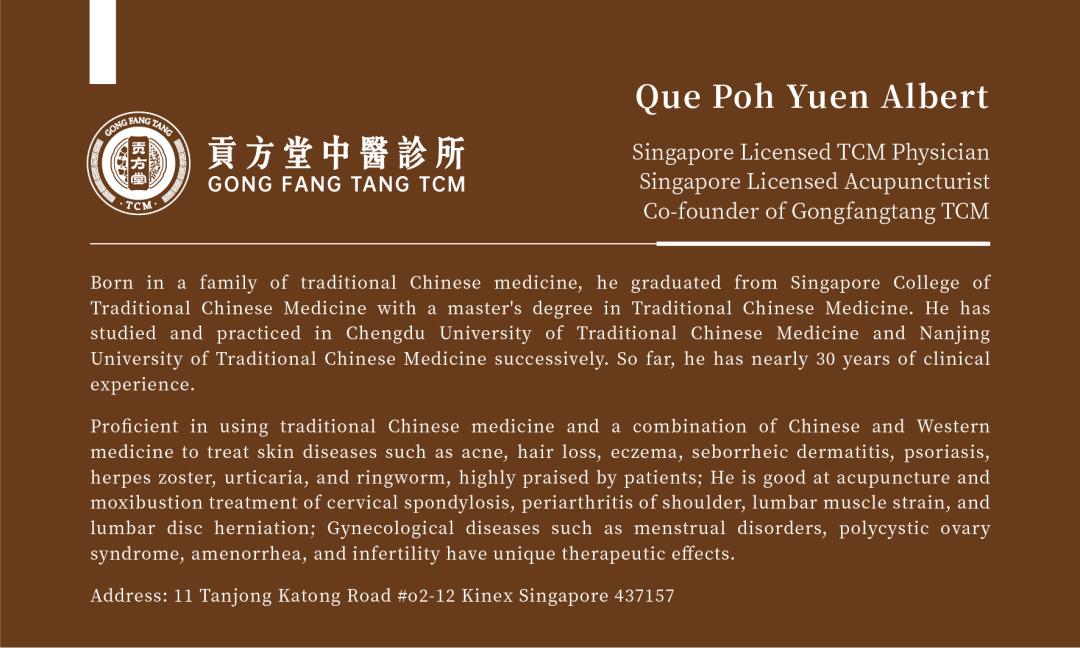In Singapore, the year-round hot and humid climate leaves many residents struggling with excessive dampness and oily skin. Greasy complexions, limp hair soon after washing, and symptoms like bodily heaviness and poor appetite significantly impact daily life.

Dr. Qiu Baorun from Singapore’s Gong Fang Tang TCM Clinic explains that from a TCM perspective, these issues primarily stem from spleen and stomach dysfunction. The spleen governs transformation and transportation; when spleen qi is deficient, water-dampness metabolism becomes impaired. This leads to internal dampness accumulation, which rises to the skin’s surface, causing oiliness. Poor dietary habits—such as frequent consumption of raw, cold, greasy, or spicy foods—alongside sedentary lifestyles and chronic sleep deprivation further burden the spleen-stomach system, worsening dampness retention.
Herbal Treatment: Formulas are customized based on the patient’s symptoms and constitution. Common dampness-resolving herbs include:
Poria (茯苓, Fúlíng): Promotes urination, leaches dampness, strengthens the spleen, and calms the mind.
Coix Seed (薏苡仁, Yìyǐrén): Clears dampness, fortifies the spleen, and relieves diarrhea.
Combined, these herbs enhance dampness elimination and improve skin condition internally.

External Therapies:
Moxibustion: Applied to acupoints like Zusanli (ST36) and Yinlingquan (SP9) to warm meridians, dispel dampness, and disperse cold. Zusanli regulates the stomach, while Yinlingquan strengthens the spleen.
Cupping: Stimulates local blood circulation, unblocks meridians, and aids dampness expulsion.
Diet: Minimize raw/cold foods (e.g., ice cream), fried items, and sweets. Prioritize spleen-supporting ingredients like Chinese yam, winter melon, and adzuki beans.
Exercise: Moderate aerobic activities (e.g., jogging, yoga, Tai Chi) boost qi-blood flow, enhance spleen function, and accelerate dampness clearance.
Sleep: Prioritize sufficient rest; strictly avoid late nights, which weaken the spleen and aggravate dampness.

Patient: Ms. Xu, 39, executive
Presented with: Chronic office-related fatigue, lethargy, abdominal pain, loose stools, and dull skin.
TCM Diagnosis: Spleen Deficiency with Dampness Excess
Prescription: Alisma Decoction (泽泻汤)
Composition: Alisma rhizome (泽泻, Zéxiè) 15g, Atractylodes (白术, Báizhú) 6g
Preparation: Decoct in water for oral intake.
Function: Promotes urination, resolves fluid retention, fortifies spleen, and regulates water metabolism.
Indications: Fluid retention causing dizziness, chest stuffiness, cough, or edema.
Outcome: Abdominal pain and diarrhea eased within one week. After two weeks, bowel movements normalized, daytime lethargy resolved, and skin regained healthy glow with overall lightness.

Important: TCM emphasizes individualized diagnosis and treatment. Formulas must be tailored by licensed practitioners—never self-prescribe.